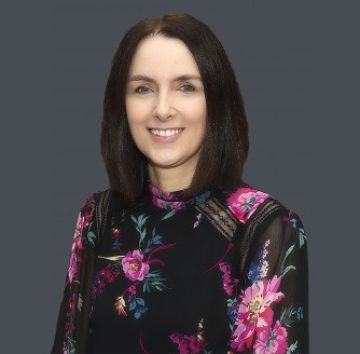
The Masters by Research programme presents a unique opportunity to achieve a level 9 postgraduate qualification, pursuing your own research interests. Engaging in this programme, you will develop and execute a research project under the supervision of our highly qualified research supervisors. Working with your supervisory team, you will acquire a mastery of the principles and theories underlying your chosen research topic, and a thorough knowledge and appreciation of the relevant literature in your field. This will be achieved through a combination of research work and participation in a range of generic and discipline-specific training modules as required. Ultimately, your work will be assessed on the basis of a written dissertation which is examined by recognised researchers in the subject area.
The starting point for any research degree is finding an appropriate supervisory match. At the School of Business, we are well established in the area of postgraduate research supervision. Currently, we have approximately thirty research students engaging in research across a wide range of topics relating to business, and we welcome applications from prospective students wishing to pursue independent postgraduate research leading to a Master of Business degree.
When does the Masters by Research Programme start and how long does it take to complete?
Our Masters by Research programme runs throughout the academic year. New research students are typically enrolled at either the beginning of September or the beginning of January. Students may enrol on either a full-time (FT) or part-time (PT) basis. The minimum enrolment periods for each option are:
| Mode | Duration |
|---|---|
| Full-time | Minimum 15 months (typical duration is 24 months) |
| Part-time | Minimum 30 months (typical duration is 48 months) |
What does undertaking the Masters by Research Programme entail?
Undertaking the Masters by Research programme entails the following:
- You will develop and execute a research project under the supervision of highly-qualified research leaders.
- You will conduct original, independent research while acquiring a comprehensive knowledge of the specialist area wherein your research is focussed.
- Your research will culminate in a Masters by Research dissertation (approx. 45,000 words) which will be assessed by research experts in your field.
The University currently offers a range of Universal (generic) and Project Path (discipline-specific) modules on the Structured PhD programme (see below). Subject to availability, students on the Masters by Research programme may request to attend these modules. Note, there is no requirement for Masters by Research students to accumulate credits for module completion.
| Full Title | Credits | Module ID |
|---|---|---|
| Research Planning and Project Management | 5 | RESA-0183 |
| Innovation and Entrepreneurship | 5 | ENTR-0038 |
| Statistics and Quantitative Data Analysis | 5 | STAT-0055 |
| Research Integrity and Ethics (mandatory) | 5 | RESA-0180 |
| Introduction to Research Methodologies | 5 | RESA-0179 |
| Research Communication | 5 | COMM-0078 |
| Academic Writing for Research Postgraduates | 5 | RESA-0182 |
| Practical Pedagogy for Research Postgraduates | 10 | RESA-0181 |
| Power, Place and Knowledge Production | 5 | PROD-0019 |
The following Project Path modules are designed to enable you to develop important discipline-specific skills.
| Full Title | Credits | Module ID |
|---|---|---|
| Professional Skills Development 1 | 5 | PROF-0044 |
| Qualitative Data Analysis | 5 | DATA-0007 |
| Business Theory Development and Application 1 | 5 | BUSI-0307 |
| Research Philosophy | 5 | RESA-0125 |
| Reputation Management | 5 | MARK-0011 |
| Strategic Marketing Planning | 5 | MARK-0200 |
| Econometrics | 5 | ECOB-0018 |
| Corporate Financial Interpretation | 5 | ACCB-0022 |
| Innovation Management and Design | 5 | BUSI-0322 |
| Knowledge Management | 5 | MGTB-0031 |
| Contemporary Issues in HRM | 5 | HRMB-0106 |
| Strategic International HRM | 5 | HRMB-0107 |
| Directed Independent Learning | 5 | A28801 |
| External Advanced Research Learning | 5 | A28802 |
The entry requirement for registration on a postgraduate research degree is an Honours Bachelor degree (minimum level: Second Class Honours) in a field of study related to the subject matter of the PhD degree sought.
For applicants whose first language is not English, demonstrable competence in English, both spoken and written, is also required (e.g. 6.5 IELTS).
How much are the fees for the Masters by Research Programme?
Postgraduate fees are payable annually and a listing of the current Postgraduate Fee schedule is available here.
How to Apply
The application procedure for research degrees in SETU Waterford varies depending on whether you plan to pay fees and other costs yourself (“self-funded”) or whether you are applying for a position funded by a research grant awarded to a SETU Waterford staff member (“funded”).
Funded Research Positions
Opportunities for funded research projects leading to postgraduate awards are typically advertised through the media and on the SETU Waterford website here.
All applications for admission to funded postgraduate research degrees at SETU Waterford are made via the submission of a completed application form submitted by email to the Postgraduate Admissions Office.
Self-Funded Research Positions
The School also welcomes applications for self-funded research projects, i.e. those that are not, at the time of your initial interactions with SETU Waterford, funded by an external research funding body. Typically, in this case, you may approach the School with your own concept for a research project, which you plan to self-fund for the duration of the project.
Applications for admission to self-funded research degrees at SETU Waterford are made through the Postgraduate Application Centre. However, before you make an application for a self-funded PhD, you are requested to complete the pre-application steps below.
Pre-Application Steps for Self-Funded Research Positions
It is strongly recommended that preliminary discussions take place between the potential applicant, a prospective supervisor and the Programme Leader/Head of Department, before a formal application to join a research programme is made. This is to ensure that the School has the requisite expertise, capacity and authority to offer supervision to you.
For help finding a prospective supervisor for a self-funded research position, please contact the PGR Research Programme Leader, Dr. Anne Sweeney, forwarding a brief research proposal and a full CV.
Guidelines for Preparing a Research Proposal
To identify potential supervisors, you are requested to forward a brief research proposal to the Programme Leader, Dr. Anne Sweeney. The proposal should set out precisely the nature of the study area, the objective of the research you plan to pursue, the research question(s) you seek to answer, an outline of the proposed methodology, and an assessment of the contribution the study would make. This should be written in a formal academic style, with proper and appropriate academic citations and references, and should enable a potential supervisor to decide if the proposal is congruent with their current research interests. As stated above, this should be accompanied by a full CV.
If a suitable supervisory team is identified at this stage, you will be advised to make an application for a self-funded research position through the Postgraduate Application Centre. If however, the School does not have the capacity to provide supervisors for your research project, you will be advised not to submit an application.
Enrolling on the Postgraduate Research Register
Once an application to join a research programme has been submitted and approved by the Head of Department, (and eligibility criteria is checked by Registry), you and your supervisory team will then submit a completed PG_A2 Form, to enable you to enrol on the postgraduate research register at SETU Waterford. Once the PG_A2 Form is approved, you will be invited to register at SETU Waterford and the research programme commences.
Course Leader










